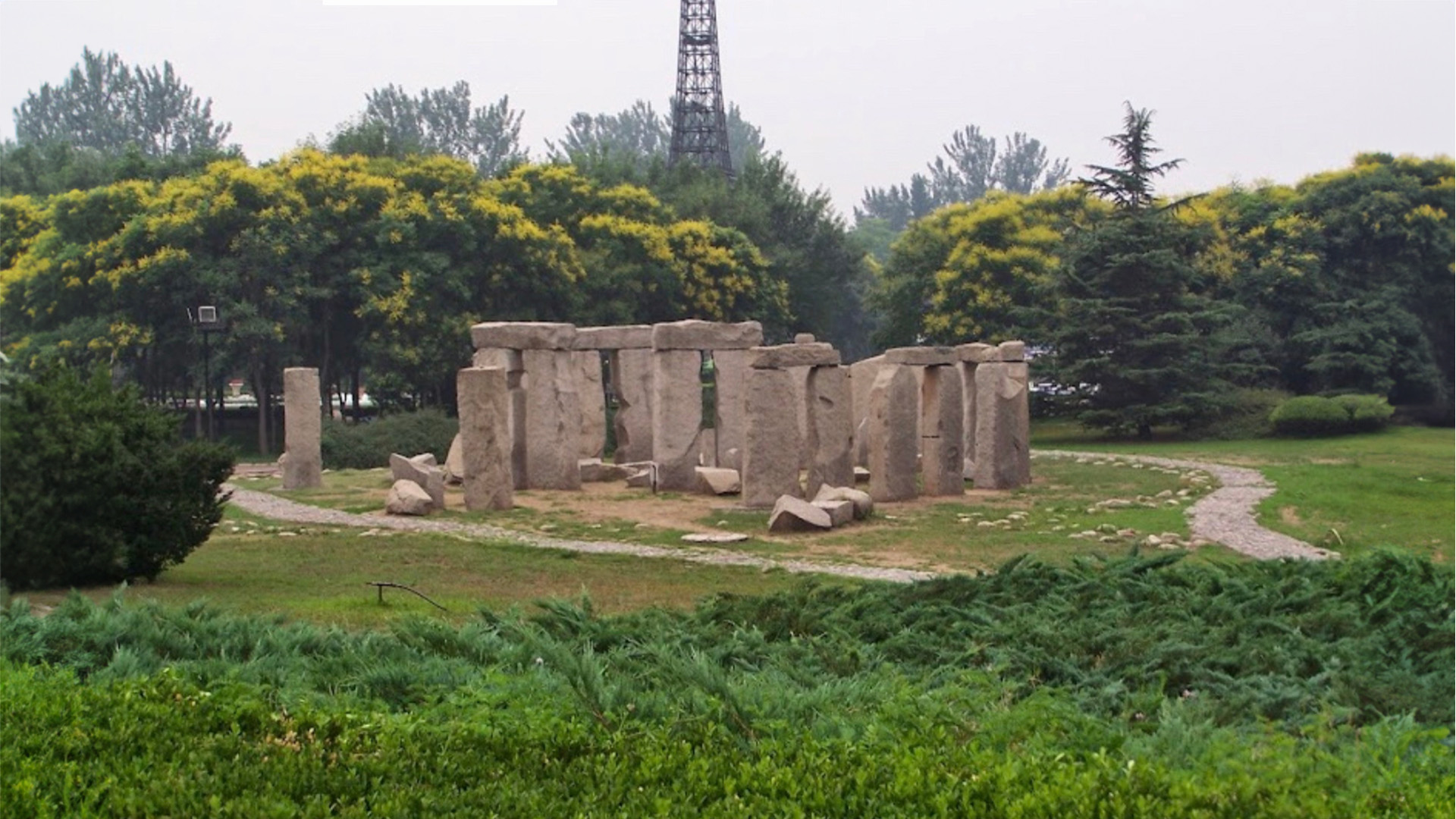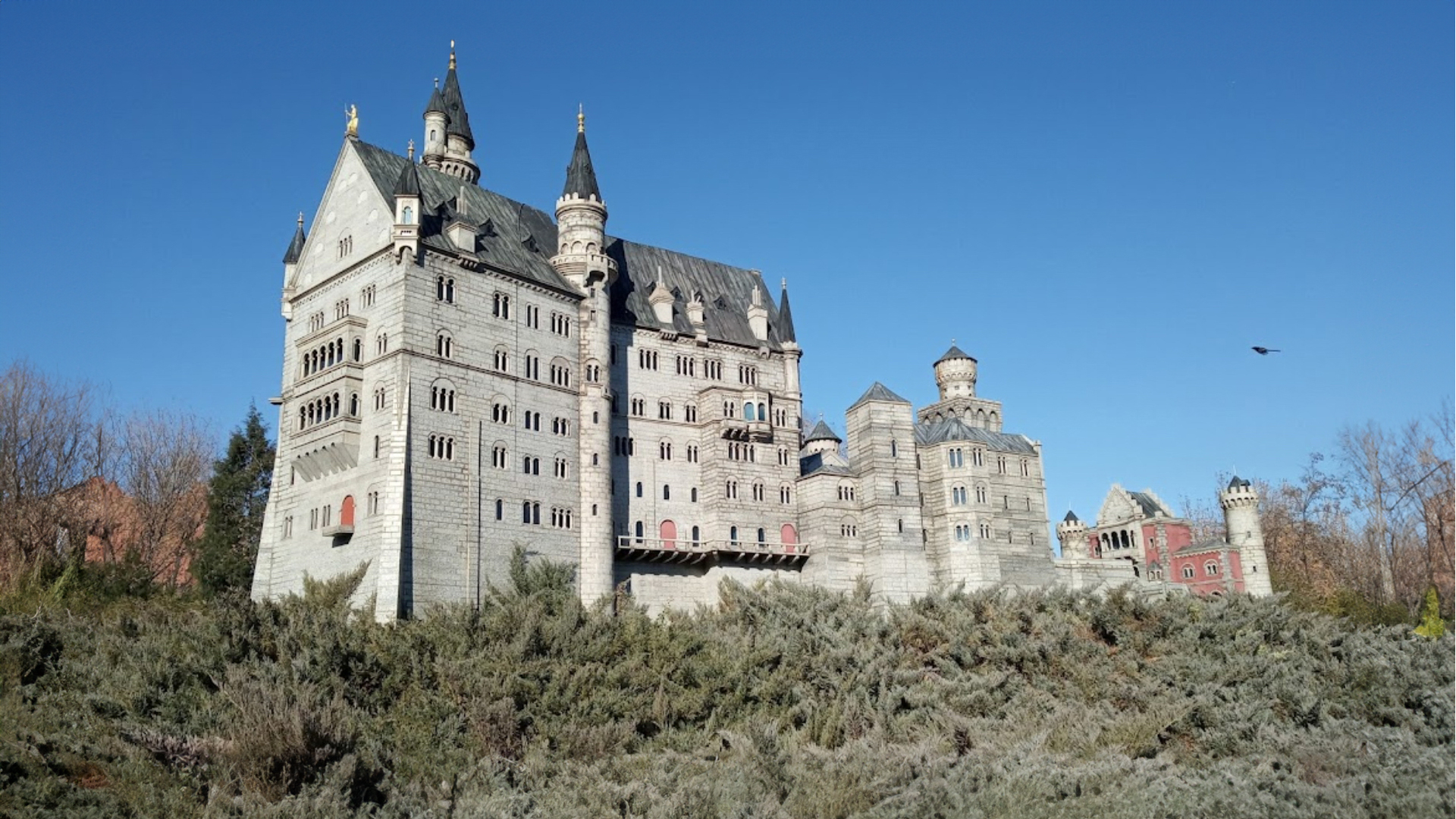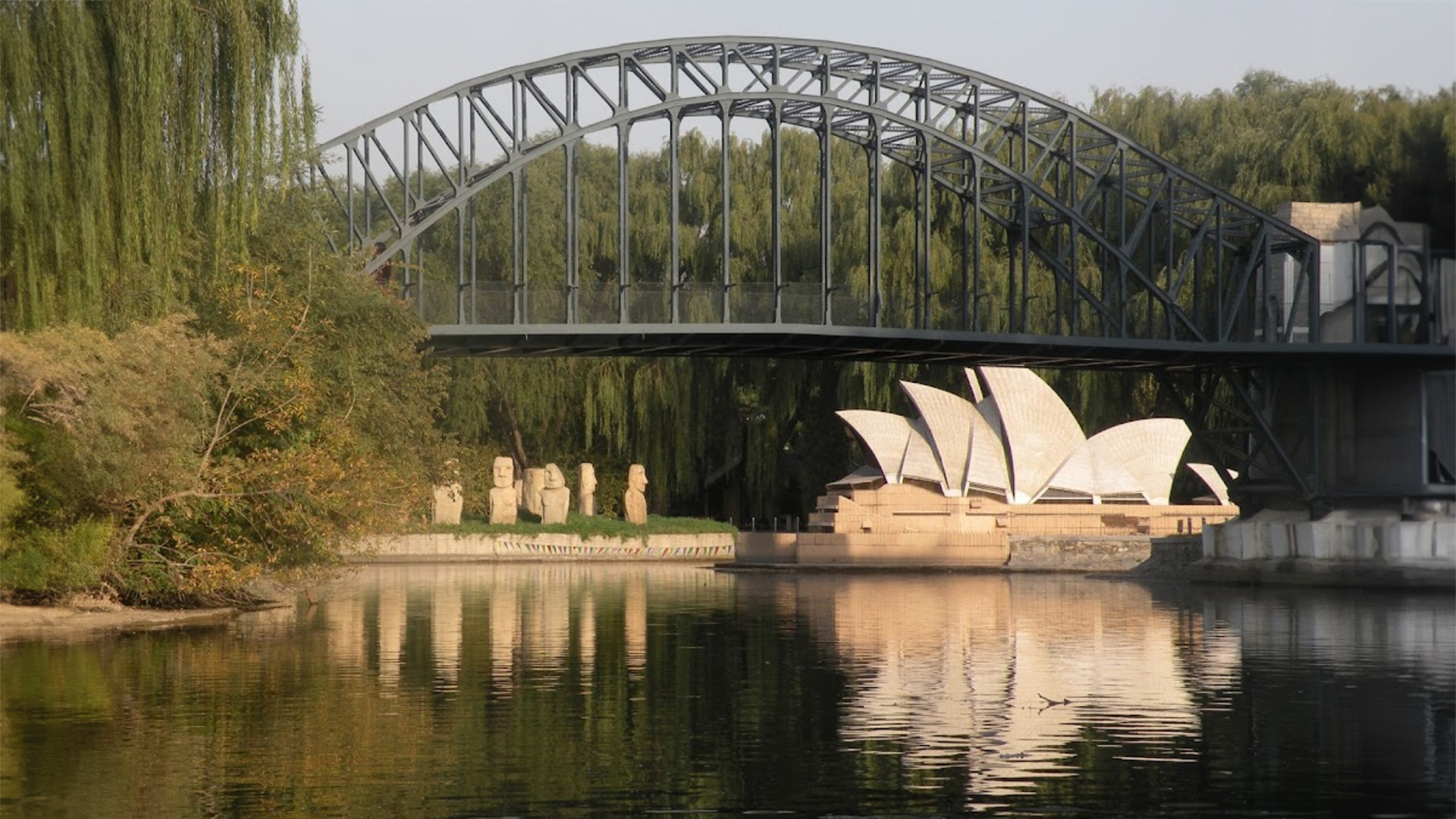Where There is Nothing Else
Where There is Nothing Else (无有之乡)
2024
Images about the World Park of Beijing,
16x9, variable size
“今子有大树,患其无用,何不树之于无何有之乡,广莫之野,彷徨乎无为其侧,逍遥乎寝卧其下。不夭斤斧,物无害者,无所可用,安所困苦哉!”
—庄子,《逍遥游》
“You, Sir, have a large tree and are troubled because it is of no use - why do you not plant it in a tract where there is nothing else, or in a wide and barren wild? There you might saunter idly by its side, or in the enjoyment of untroubled ease sleep beneath it. Neither bill nor axe would shorten its existence; there would be nothing to injure it. What is there in its uselessness to cause you distress?”—Zhuangzi, Enjoyment in Untroubled Ease




















作品探讨了庄子《逍遥游》中 "无有之乡 "的概念与主题公园的关系。作品中的图片取自谷歌地图的评论区,并用人工智能编辑和扩展。
在庄子哲学中,"无有之乡 "是一个超脱的精神世界,人在其中逍遥自在。在汉语中,"无有之地 "用来形容一个空旷、梦幻般的地方。
世界公园生动地将其具象为了人们弥补遗憾的真实场所(例如,"世界公园 "是对绝大多数无法亲临世界名胜古迹的人们的一种慰藉)。尽管这些景点建筑大多是复制品,但也弥补了人们的缺憾。人们会为这些景点拍照留念。在照片与其内容中的仿真建筑构成的梦境中,超真实将整个主题空间变为可被凝视的符号,以至于现实本身不再存在,人们由此进入 "无有之乡"。
The work explores the relationship between the concept of "the land where there is nothing else" in the Eastern philosophy of Zhuangzi and theme parks. Images are about the World Park in Beijing, China, taken from the Google Maps comments section, edited and expanded with AI. In Zhuangzi's philosophy, "the land where there is nothing else" is a transcendental spiritual world in which people are free. The phrase "where there is nothing else" is used in Chinese to describe an empty, dreamlike place.
World parks vividly visualise this place as a real place where people make up for their regrets (e.g. "world park" is a consolation for the vast majority of people who are not able to see the world's famous sites in person). Even though most of them are replicas, it makes up for a lack, so people take pictures of these sights. In the dream of the photographs, a kind of hyper-reality is created, through which people enter the so-called "the land where there is nothing else."